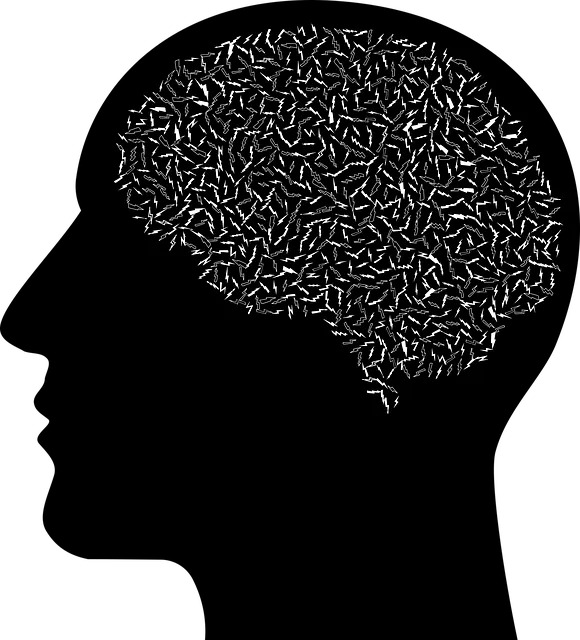After significant loss, Longmont Kaiser Permanente (LKP) psychiatry offers specialized support through accessible phone lines, counseling, and mindfulness practices. Their services guide individuals through stages of loss, grief, and bereavement, providing tools for stress management, emotional intelligence, and community building to navigate these complex emotions healthily. LKP's evidence-based therapies, including CBT and mindfulness, empower healing while reducing stigma, offering safe spaces for personal growth after loss. Reach out via the LKP psychiatry phone number for tailored support during difficult times.
Grief is a powerful, often complex journey after experiencing loss. This comprehensive guide aims to illuminate the path through understanding and navigating grief, bereavement, and their profound impact on mental well-being. We explore various therapeutic approaches, highlighting the crucial role of counseling in managing these challenges. For personalized support, Longmont Kaiser Permanente Psychiatry offers resources and guidance, available via their dedicated phone number, to help individuals heal from bereavement. Discover strategies to process grief effectively and reclaim a sense of balance.
- Understanding Loss, Grief, and Bereavement: A Comprehensive Overview
- The Role of Counseling in Navigating Difficulties After Loss
- Longmont Kaiser Permanente Psychiatry: Unlocking Supportive Resources
- Identifying When You Need Professional Help for Grief
- Effective Therapies and Techniques for Healing from Bereavement
Understanding Loss, Grief, and Bereavement: A Comprehensive Overview

Loss, grief, and bereavement are interconnected concepts that describe the emotional journey following a significant loss. Understanding each term is crucial for anyone seeking support or providing guidance during difficult times. Loss refers to an absence or change in something valued, such as a loved one, relationship, or even a dream. It’s the initial shock and realization of what’s been taken away, often triggering intense emotions.
Grief is the complex emotional response to loss, characterized by feelings of deep sorrow, anger, confusion, and loneliness. It’s a natural process that varies from person to person, with no set timeline or stages. Bereavement, on the other hand, is the period after a loss during which individuals work through their grief and adjust to life without the person or thing they’ve lost. For those in need of support, Longmont Kaiser Permanente psychiatry services offer guidance, with phone numbers easily accessible for those seeking help with mental wellness, specifically related to loss, grief, and bereavement. Incorporating mental wellness journaling exercises and mindfulness practices like compassion cultivation can also be valuable tools during this process, aligning with the mind over matter principles that empower individuals in managing their emotional well-being.
The Role of Counseling in Navigating Difficulties After Loss

After experiencing a significant loss, seeking counseling can be transformative in navigating the complexities of grief and bereavement. The process offers a safe space for individuals to express their emotions, whether it’s profound sadness, anger, or guilt—emotions often too intense to manage alone. Professional counselors are trained to help clients understand and cope with these feelings, providing valuable tools for stress management. By fostering emotional intelligence, counseling sessions empower individuals to process their loss in a healthy manner, allowing them to gradually rebuild their lives while cherishing cherished memories.
For those seeking support, Longmont Kaiser Permanente’s psychiatry services offer a trusted resource. Their team provides specialized care, tailored to the unique needs of each individual. Additionally, engaging with initiatives like Stress Management Workshops Organization or exploring Mental Wellness Podcast Series Productions can further enhance emotional resilience during challenging times. These resources collectively contribute to mental wellness, ensuring individuals have access to comprehensive support systems as they navigate their grief journey.
Longmont Kaiser Permanente Psychiatry: Unlocking Supportive Resources

Longmont Kaiser Permanente Psychiatry offers a beacon of hope for individuals navigating loss, grief, and bereavement. Their dedicated team provides a safe space for emotions to be expressed and understood, focusing on evidence-based therapies tailored to each person’s unique journey. Beyond individual counseling, they may facilitate support groups, fostering community among those dealing with similar challenges.
Accessing their services is straightforward; you can reach out through the Longmont Kaiser Permanente psychiatry phone number. They are committed to addressing not only the symptoms of loss but also tackling broader mental health issues like depression prevention and mental illness stigma reduction efforts. Through their comprehensive approach, they aim to empower individuals to heal and thrive in the face of adversity, contributing to a more supportive mental health policy analysis and advocacy landscape.
Identifying When You Need Professional Help for Grief

Grief is a natural response to loss, but sometimes it can be overwhelming and lead to more significant issues if left unaddressed. Knowing when to seek professional help for grief and bereavement is essential for maintaining mental wellness. Many factors can indicate that you need support; if you find yourself struggling with daily tasks or experiencing intense emotions that persist for an extended period, it might be time to reach out. Longmont Kaiser Permanente’s psychiatry services offer specialized care, providing a safe space for individuals navigating complex grief.
The risk assessment for mental health professionals plays a crucial role in identifying when intervention is necessary. Through comprehensive evaluations, they can guide patients towards appropriate resources, whether that includes individual counseling, group support, or mental wellness coaching programs. Community outreach program implementation can also be beneficial, offering services to those who may not typically seek help due to barriers like stigma or lack of awareness.
Effective Therapies and Techniques for Healing from Bereavement

Healing from bereavement is a deeply personal journey, and various effective therapies and techniques can help individuals navigate this challenging period. One approach gaining recognition is cognitive-behavioral therapy (CBT), which aids in identifying and changing negative thought patterns associated with loss. By modifying these thoughts, CBT empowers individuals to cope more adaptively. Another powerful tool is mindfulness meditation, shown to reduce symptoms of depression and anxiety often accompanying bereavement. Practicing mindfulness encourages individuals to stay present, fostering a sense of calm and acceptance.
In addition to these techniques, Longmont Kaiser Permanente psychiatry services offer specialized counseling tailored to individual needs. The psychiatric professionals there employ evidence-based methods, including interpersonal therapy and support groups, to facilitate coping skills development. These therapies help individuals process their emotions, maintain social connections, and adapt to life after loss. Moreover, reducing the stigma associated with mental illness is a crucial aspect of these efforts, creating a safe space for those seeking healing from bereavement-related mental health challenges.
Grief is a natural response to loss, yet navigating its complexities can be daunting. Longmont Kaiser Permanente psychiatry offers invaluable support through specialized counseling services for those dealing with bereavement. By understanding the various stages of grief and exploring evidence-based therapies, individuals can unlock healing and find meaning in their journey forward. For those seeking guidance, contacting the Longmont Kaiser Permanente psychiatry team at [Phone Number] is a crucial step towards finding solace and rebuilding resilience.






